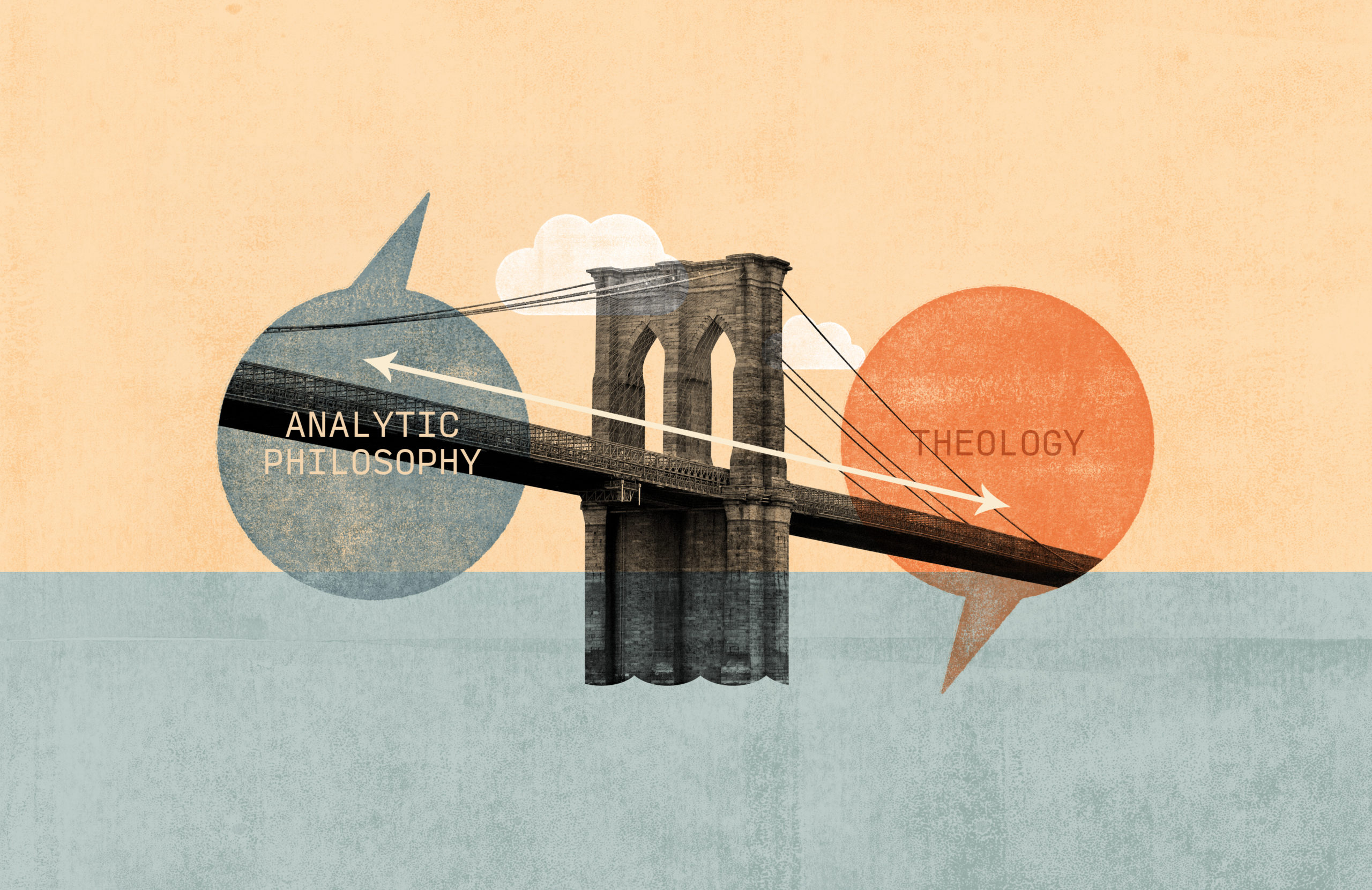
What if a new movement in theology could widen the pathway to God? What if logical reasoning could be a bridge to spiritual revelation?
Analytic thinking is embedded in all kinds of aspects of everyday life. It influences what clothes we decide to wear on any given day, what routes we take to get from Point A to Point B, what things we decide to buy or whose advice we decide to follow. Lawyers use analytic analysis to argue a case, teachers use it to determine grades, and business leaders use it to find solutions to problems and to assess new opportunities.
And yet, when it comes to the biggest issues we face in life – deep questions about God and our place and purpose in the world – many of us, including religious leaders past and present, have concluded that faith is pretty much a blind leap, involving trust and will but ultimately beyond reasonable thinking.

Still, as philosophers and theologians often remind us, analytic and well-ordered inquiry may not answer all spiritual quandaries. But it certainly can bring us closer to truth.
That conviction is the guiding force behind The Logos Institute for Analytic and Exegetical Theology, founded in 2016 as a research center at the University of St Andrews in Scotland with a grant from Templeton Religion Trust. Students come to the Institute from throughout the world to pursue postgraduate and doctoral research with a faculty of international reputation, as well as visiting senior research fellows.
The term “Logos” is Greek for “word.” In Christian tradition, it’s used in the Bible’s Gospel of John to refer to the incarnation: God becoming human. Staying true to its name, the Logos Institute aims to explore this and other central theological messages of Christianity through collaboration with systematic theologians, Biblical scholars, analytic philosophers and the sciences.
Notably, the Logos Institute is committed to a relatively new byroad in theological study: analytic theology, which runs parallel in its methods to analytic philosophy. Both reflect a concern for transparency, simplicity in expression, clear and logical argumentation, and painstaking analysis, says Alan J. Torrance, Logos Institute cofounder and now emeritus professor of systematic theology.

A longstanding distinction between philosophy is that theology has traditionally been defined as a religion-neutral worldview. In contrast, theology is embedded within a religion, drawing on its resources of scriptures, doctrines and rituals. That said, the two disciplines have influenced each other significantly over centuries. And analytic theology is a recent instance of their interaction.
The dividing lines between the two disciplines are beginning to blur, Torrance reports.
“There’s been a sea change since I was a student,” Torrance says. “Forty years ago, you wouldn’t have contemplated bringing God into philosophical debate or suggesting that theism had explanatory power. Nowadays, this whole debate is completely different with one in four academic philosophers being a theist and enormous amounts of superb work being undertaken in the field.”
For scholars on an academic trajectory, it can be enormously tempting to become focused on your own area of specialization and stay inside the comfortable echo chamber of that field. In contrast, the Logos Institute encourages an alloy of perspectives. It supports – even forces — interdisciplinary engagement. By opening silos and facilitating the cross-pollination of ideas, it’s resolutely and ambitiously committed to improving inquiry into the nature of spiritual realities.
The work of the Institute focuses on four big-picture questions. Torrance describes them as “not only central to the task of academic theology but of significance both for the life of the church and for society at large.” They include:
These topics are being explored deeply and broadly in seminars, colloquia, conferences and collaborative research projects, leading to published journal articles and monographs.

More than just think-tank preoccupations or fodder for fellow scholars, much of the research done at the Institute is freely accessible to the public in blog posts and podcasts on the Institute’s website. In addition, there are about a dozen short, easy-to-read and downloadable booklets there that explore provocative issues such as “Why Would a Good God Allow Suffering?”, “Can God Change?” and “What’s So Unique About Being Human?”
It’s exciting research that delves into new ideas and alternative approaches. By exploring the relation of God to people on earth and how we can understand the uniqueness and purpose of being human, Torrance says, the Logos Institute hopes to help people flourish in an increasingly alienated and dysfunctional world.
It’s an audacious goal, certainly. But it’s also one that can potentially take theology out of the sheltered towers and cloisters of academia to make God more real, knowable and meaningful in the context of everyday lives. For many, that’s a difference that can make it possible to move forward in the journey of faith.
